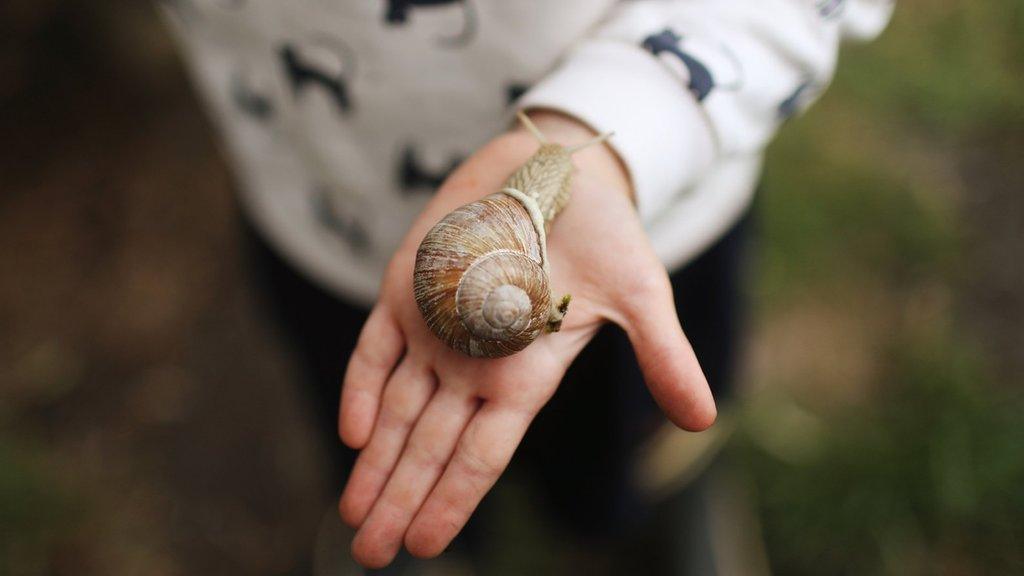Snails: Chester Zoo and Bristol Zoological Sociey boost numbers of 'extinct' tiny snails
- Published
- comments
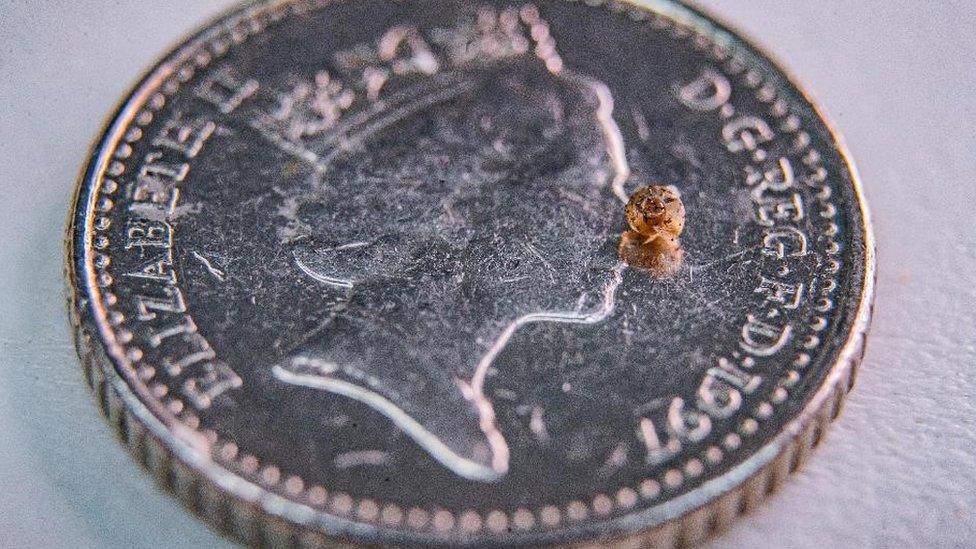
The snail sits on top on a 5p to show how tiny they are!
Two tiny snail species have been rediscovered after it was thought they were extinct.
The Desertas Island land snails hadn't been recorded for 100 years, so it was thought they had disappeared.
But experts found tiny populations of two species of the snail, each with fewer than 300 individuals. They were found on a remote island, off the south-east coast of Madeira, in the North Atlantic Ocean.
The snails are thought to be the very last of their kind on the planet and... they are so tiny they can fit on a 5p coin!
Recovery plan for the snails
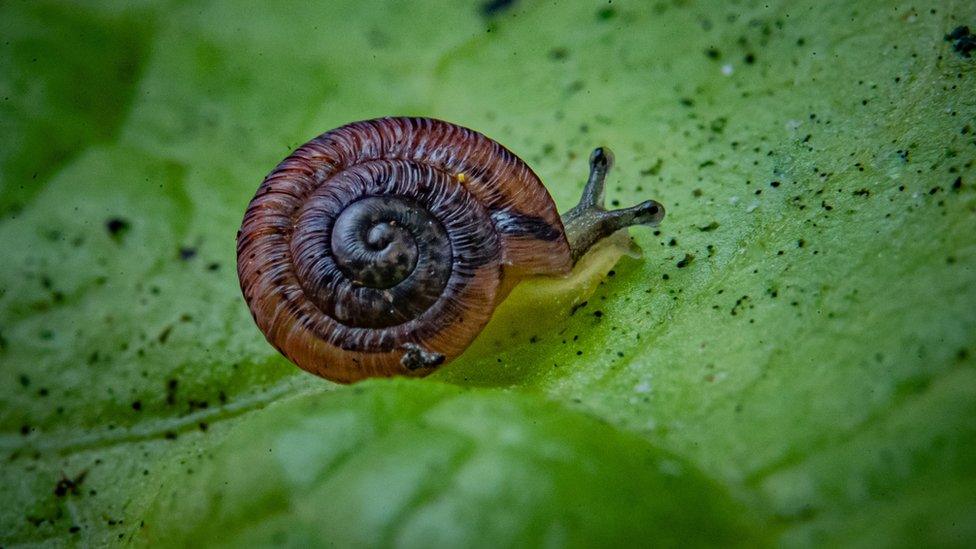
Check out how small this snail is!
The rediscovered snails are now part of a plan to help boost their numbers.
Around 60 of the snails from each species were carefully collected and transported from the island to the UK.
Chester Zoo and Bristol Zoological Society are both working to increase the numbers and save the future of the species.
Staff at both zoos have specialist knowledge and have made breeding centres which mimic the conditions for the snails to reproduce.
Chester Zoo has already had success, with both species breeding for the first time under human care. There are now more than 1,200 of the little snails being watched over by experts.
Dr Gerardo Garcia, Chester Zoo's Curator of Lower Vertebrates and Invertebrates, said that "urgent action" was needed to help these species that were thought to be extinct.
We're also hopeful that many of the snails bred here will be reintroduced to some of the surrounding Desertas islands, once work is completed to restore habitat and remove the invasive species that have devastated the islands.
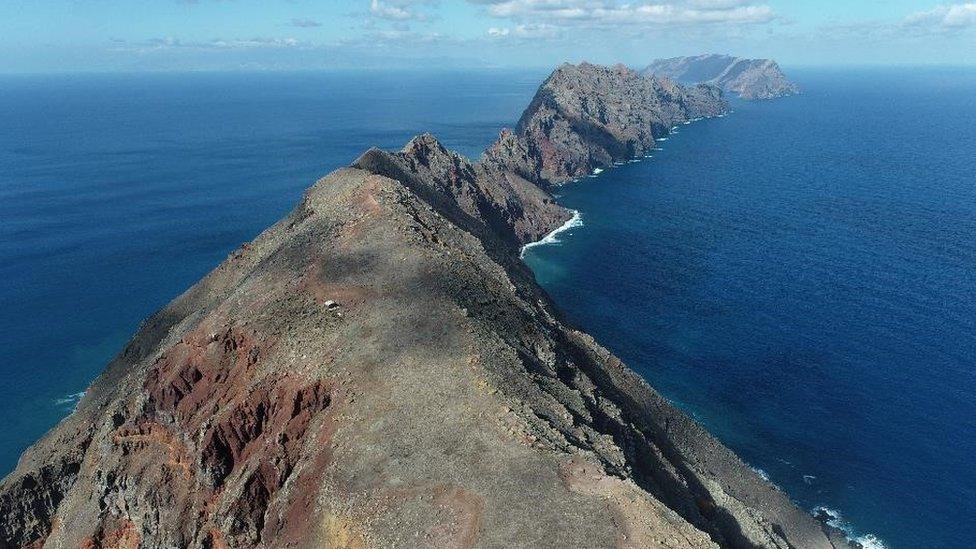
The Desertas Islands where the snails were found
The Desertas Islands, where the snails were found, are now protected nature reserves under Portuguese and European law.
The two snail species (Discula lyelliana and Geomitra grabhami) have also been put as critically endangered by the International Union for the Conservation of Nature (IUCN).
After this successful breeding project, they will used as a blueprint to help other endangered reptiles and invertebrates in the region.
- Published30 November 2020
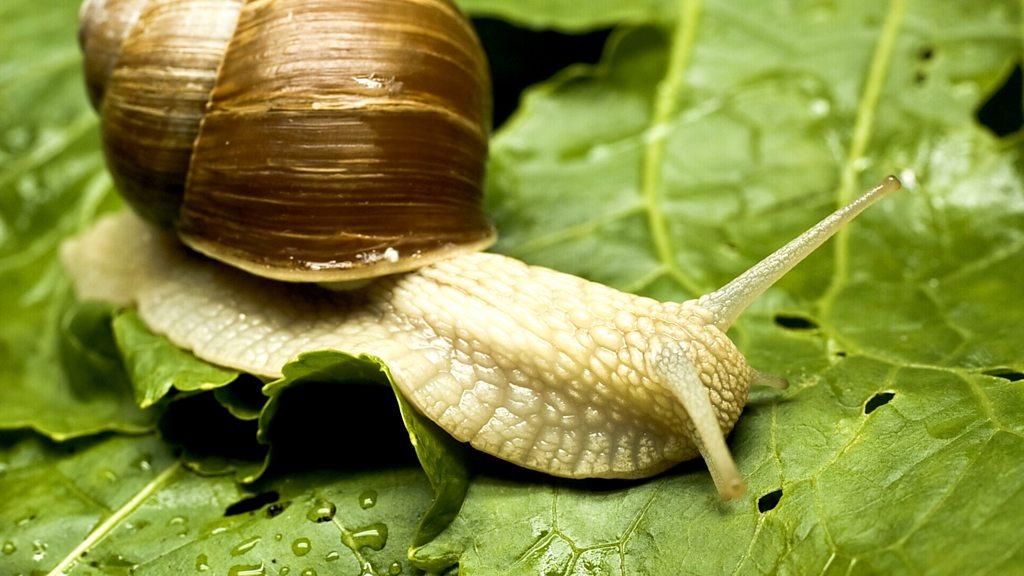
- Published11 May 2021
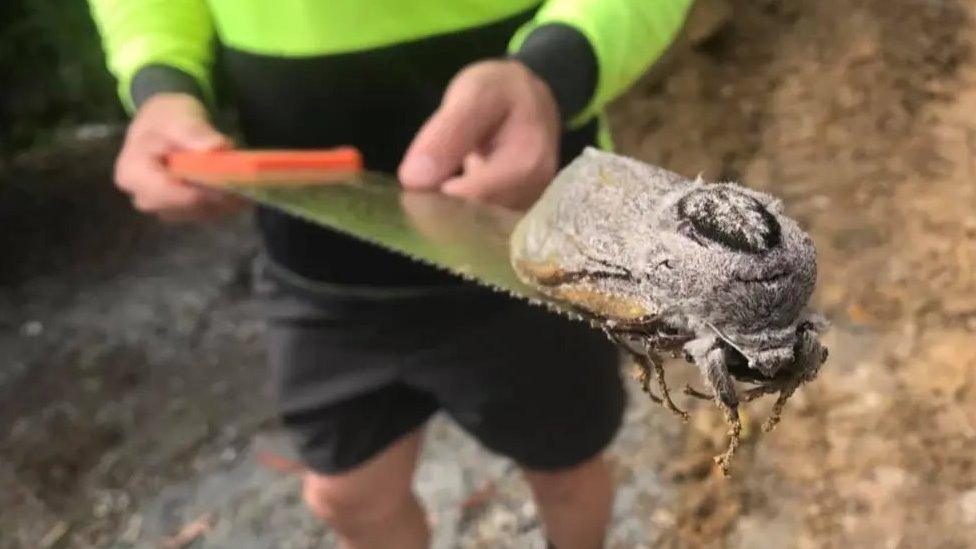
- Published30 November 2020
